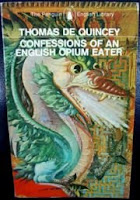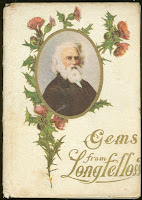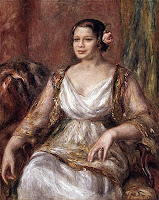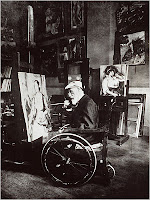
Monday, December 31, 2007
On Talking

Friday, December 28, 2007
If I had even a semblance of hand/eye coordination, I would be a mechanic. I take an inordinate amount of pleasure in solving problems that crop up with the car. For instance, changing the parking light and headlight were huge accomplishments for me, after which I proclaimed proudly to my roommates: "I am the coolest person you know." Also, I used my mechanic skills to diagnose the propensity of the air conditioning (which doesn't actually work) to blow the white, #25 fuse, which I know how to replace. Now I have a spirit-filled mechanic in Williamsport who is a family friend and who actually fixed the short and now I have defrost once again!
Dmx - Lord Give Me a Sign
I've been addicted to this song of late (basketball warm up music). Plus, you have to love the allusion to Jesus in the desert in the video. Plus, my parents don't make me turn it off.
Thursday, December 27, 2007
On Basketball at Christmas
Stearns knits and yells sarcastic and embarrassing comments at the refs ("It's because she's black. He called a foul because he's a racist"; "Sir: she can't help that she's tall; the other girl just bounced off of her"). It doesn't matter if the call is right or wrong--Stearns ridicules it.
Ilana plays--she's the one we're watching. She is absolutely intense--guarding her man while the ball is at the other end of the court. But at least she guards her man, unlike three quarters of the rest of her team.
My dad repeats the same command: "Take it from them, take it from them, take the ball from them" (when do you not want to take the ball from the other team?). And giving the players comments on every action ("You've got to box out"; "You've got to rebound").
My mom cheers very loudly. She calls the girl everyone knows as "Snooty," her real name, Frances, because she doesn't feel right using nicknames. And she cheers very loudly.
I am less interesting (I generally just tell the rest of them to stop embarrassing our family while being absolutely amused by it all). But tonight I had no voice and couldn't stop myself from talking or cheering so my whole voice went away while hoarsely yelling.
Monday, December 24, 2007
While Wrapping Presents
Emily: "What does 'peu' mean?"
Ilana: "I thought you knew French!"
Emily: "Confession: I don't actually know any French."
Stearns: "I had my suspicions."
Sunday, December 23, 2007
Fourth Sunday of Advent--Violet

Saturday, December 22, 2007
Wednesday, December 19, 2007
Monday, December 17, 2007
As I Ate the Tomatoes I Wept
AS I ATE THE TOMATOES I WEPT. I recently ate my first grape tomato. I’d never seen one in Hong Kong before. It was so delicious that I don’t mind telling you that I wept. After that I ate another, and then another. They are as addictive as cigarettes, and I crammed handful after handful of them into my mouth as the tears rolled down my cheeks.
Sunday, December 16, 2007
Third Sunday in Advent--Rose

The androgynous visitor is dressed
in a rosy fabric thick as pigment, the tunic
blown back by turbulence to expose its lining,
a blue crescent under the right arm. Angels
are said to be genderless, so there’s a
certain enigma here. A wing, the clue to otherness,
arcs in golden space. We are
at several removes from the reality, reading
between the lines, speculating on Angelico’s
speculation. How does an angel look? We are not
Daniel or Zechariah; we have not been shown.
This rendering suggests not celestial power but
a weight of apprehension; what must be announced
will not be entirely easy news.
Wind is part of the picture, gusts
whipping the robes and body along a stretch
of patterned carpet. Gabriel seems to be
advancing up an incline, laboring with
the imperative of message, hair flattened against scalp,
features tense, hands folded tight to the chest.
Agitation or awe—it is hard to tell. We can’t see
the heart hammering in the unearthly body,
but the announcement, the cracking open of a space
within the vastness containing earth and heaven,
must weigh like a gold boulder in the belly.
How might it feel (if an archangel has feelings) to bear
this news? Perhaps as confounded as the girl, there
in the corner? We worry that she might faint.
Weep. Turn away, perplexed and fearful
about opening herself. Refuse to let the wind
fill her, to buffet its nine-month seed into her earth.
She is so small and intact. Turmoil will wrench her.
Might she say no?
Fabulous Things I Heard on the Radio
Saturday, December 15, 2007
On Forgiveness as Political
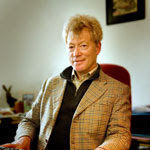
Hannah Arendt writes in The Human Condition about forgiveness and promising as redemption from the irreversibility and unpredictability of the process that is started by action. Forgiveness, an act of our free will, can remedy the problem of the unforeseen consequences of our actions. She writes,
The possible redemption from the predicament of irreversibility--of being unable to undo what one has done though one did not, and could not, have known what he was doing--is the faculty of forgiving. The remedy for unpredictability, for the chaotic uncertainty of the future, is contained in the faculty to make and keep promises. The two faculties belong together in so far as one of them, forgiving, serves to undo the deeds of the past, ... and the other, binding oneself through promises, serves to set up in the ocean of uncertainty, ... islands of security.
These islands of security make continuity and durability possible in relationships. And while promises allow us to keep our identities, forgiveness allows us continued free will to act, and not be "confined to one single deed from which we could never recover."
On the Difference Between Political Theory and Political Philosophy
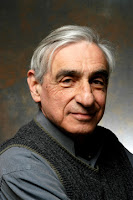
"I don't think that I ever managed real philosophy," Michael Walzer says in the interview that forms the last chapter of "Thinking Politically" (Yale University Press, 333 pages, $30), the stimulating new collection of his essays. This may sound like false modesty coming from Mr. Walzer, who is one of America's leading political philosophers. But in fact, by forswearing the name of philosopher, he is merely trying to give a more precise definition of the kind of thinking he does. "I couldn't breathe easily at the high level of abstraction that philosophy seemed to require," he explains. "I quickly got impatient with the playful extension of hypothetical cases, moving farther and farther away from the world we all lived in." Mr. Walzer's essays take exactly the opposite approach: They set up camp in the midst of the world we all live in bringing the rigor of political theory to the messiness of political debate. It makes sense that Mr. Walzer is both a professor at Princeton's Institute for Advanced Study and an editor of Dissent, the left-liberal journal: His theories are always also interventions.
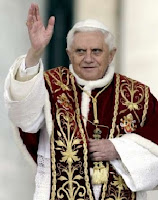
On Goodbyes

I love) I shan't have lied. It's evident
the art of losing's not too hard to master
though it may look like (Write it!) like disaster
Our only health is the disease
Sin caused division, but healing for sin comes from further divisions. Saying goodbye, then, could be both the result of and a sort of penance for sin.
Parting is all we know of heaven,
Friday, December 14, 2007
Dark Night of the Soul

I abandoned and forgot myself,
Thursday, December 13, 2007
Rant: On Facebook
One summer when I was a young girl, my friends and I built a little village out of cardboard and played dolls. We had jobs for the dolls, we made miniature food, had doctors appointments, bought cars and went to church. This sort of play seems to be a normal part of childhood--as MacIntyre tells us, it is through stories that we learn about the roles of life that we have been born into, and how we are going to act in those roles. BUT once we have moved into those roles, we no longer need to pretend. Really, we could get our own dogs and flower gardens at this point. Alas, we cannot actually be zombies, but that may be for the best (and reveal another, separate problem in people who want to play a role that isn't even possible).
Wednesday, December 12, 2007
Forget about global warming, the environment, poverty, etc., dear readers. I want to suggest that you heed Frank's call and consider in what way you can work to end the writers' strike. I don't have any answers--I just want to raise awareness (which seems to put you straight on the boat to holiness these days: real problem-solving skills are not necessary, nor are practical political skills--we just all need to be aware that there is genocide going on in Sudan and that breast cancer is an issue, etc.).
Monday, December 10, 2007
For the Holidays You Can't Beat Home, Sweet Home
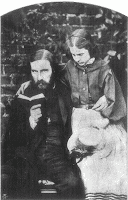
From George MacDonald's Lilith (as far as I can remember from reading this book some years ago, these conversations occur between the narrator and a man who is also a raven):
'Oblige me by telling me where I am.'
'That is impossible. You know nothing about whereness. The only way to come to know where you are is to begin to make yourself at home.'
'How am I to begin that where everything is so strange?''
By doing something.'
'What?'
'Anything; and the sooner you begin the better! for until you are at home, you will find it as difficult to get out as it is to get in.'
...
'None the less you must get to be at home in it; for home, as you may or may not know, is the only place where you can go out and in. There are places you can go into, and places you can go out of; but the one place, if you do but find it, where you may go out and in both, is home.'
...
'Home is ever so far away in the palm of your hand, and how to get there it is of no use to tell you. But you will get there; you must get there; you have to get there. Everybody who is not at home, has to go home. You thought you were at home where I found you: if that had been your home, you could not have left it. Nobody can leave home. And nobody ever was or ever will be at home without having gone there.'
Serendipity and the Internet
How to Confront Someone Who Yells. I suggest running into another room, crying. My sister or brother would just imitate the person yelling in an effort to dissolve their stress. This is usually ineffective.
Skee Lo Feet. Honestly, I know about nothing unusual about them. Although there is something unusual about his real name: it is Antoine Roundtree. If I were to assume another name, I think it would be Anne Cordelia. When I was a child, it was going to be Daisy O'Dell.
White Leopard Dreams. Well, it depends on the specifics of the dream: A bit more googling indicates that to see a leopard in the wild in your dream signifies that through persistent efforts, you will eventually overcome your difficulties. If the leopard is in a cage, then it suggests that you will overcome any obstacles. Dreaming that you kill a leopard suggests that you will definitely succeed in your projects. Dreaming that a leopard is attacking you signifies that you are overly confident in your success for the future and don't realize the difficulties and struggles that you need to endure. Seeing the skin of a leopard in your dream, signifies that you have befriended a dishonest person who means you harm. And dreaming that you are being cornered in a green tile hallway by a man walking a lion on a leash (a recurring dream of mine as a child) means that you are feeling cornered by some threatening problem. Turn the large animal in any of these dreams white and it means that the problem is even more significant and obscure than it would seem to be.
Would Audrey Hepburn. A good way to address any problem. Which reminds me of my favorite Audry Hepburn interaction (from Charade):
Reggie Lampert (Audrey Hepburn): I already know an awful lot of people and until one of them dies I couldn't possibly meet anyone else. Peter Joshua: Well, if anyone goes on the critical list, let me know.
Sunday, December 9, 2007
The desert in the garden and the garden in the desert
Of drouth, spitting from the mouth the withered apple-seed.
O my people."
My sin, yourself, a passion fruit seed in my mouth,
Spit out, like that with which you unsealed sight
Until the trees turned into breathing man.
The tree of life's sap opened up his eyes
(For once, the trees unite and knowledge ties to life).
The tree's fruit, crushed we (he) drink;
The fruit's flesh, moist and tender, full of seeds,
We eat, until we turn into a tree.
Second Sunday of Advent--Violet
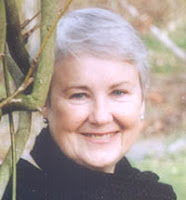
I am singing my Advent to you, God: How all year
I've felt your thrusts, every sound and sight piercing
like a little sword--the creak of gulls, the racket
as waves jostle pebbles, the road after rain--
shining like a river, the scrub of wind on the cheek, a flute
trilling--clear as a knife, the immeasurable chants of green,
of sky: messages, announcements. But of what? Who?
Then last Tuesday, one peacock feather (surprise!)
spoke from the grass; Flannery called hers "a genuine
word of the Lord." And I--as startled as Mary, early,
at your arrival in her chamber (the invisible
suddenly seen, urgent, iridescent, having put on light
for her regard)--I brim over like her, quickening. I can't
stop singing, thoroughly pregnant with Word!
Men and Women Religious as Proving and Producing Hope

This new freedom, the awareness of the new “substance” [that substance is faith, and faith is a habitus, that is, a stable disposition of the spirit, through which eternal life takes root in us and reason is led to consent to what it does not see] which we have been given, is revealed not only in martyrdom, in which people resist the overbearing power of ideology and its political organs and, by their death, renew the world. Above all, it is seen in the great acts of renunciation, from the monks of ancient times to Saint Francis of Assisi and those of our contemporaries who enter modern religious Institutes and movements and leave everything for love of Christ, so as to bring to men and women the faith and love of Christ, and to help those who are suffering in body and spirit. In their case, the new “substance” has proved to be a genuine “substance”; from the hope of these people who have been touched by Christ, hope has arisen for others who were living in darkness and without hope. In their case, it has been demonstrated that this new life truly possesses and is “substance” that calls forth life for others. For us who contemplate these figures, their way of acting and living is de facto a “proof” that the things to come, the promise of Christ, are not only a reality that we await, but a real presence: he is truly the “philosopher” and the “shepherd” who shows us what life is and where it is to be found.
Saturday, December 8, 2007
The Reed of God

John Donne on the Virgin Mary for the Feast of the Immaculate Conception (from "A Litanie"):
For that faire blessed Mother-maid,
Whose flesh redeem'd us; That she-Cherubin,
Which unlock'd Paradise, and made
One claime for innocence, and disseiz'd sinne,
Whose wombe was a strange heav'n, for there
God cloath'd himselfe, and grew,
Our zealous thankes wee poure. As her deeds were
Our helpes, so are her prayers; nor can she sue
In vaine, who hath such titles unto you.
This little poem is rich--it captures Mary's universal expression of woman-hood, as she was the woman who was both virgin and mother. It expresses her (even bodily) participation in the redemption itself. It describes her as a woman-angel (how wonderful, given Aquinas's description [simplified in My Way of Life] of the angels as "neither old or young, sick or healthy, men or women, infants or ancients, tall or short, fat or thin; they are the bright flames of life, unflickering, unfading, indestructible, flames that are fed by nothing but God."). She unlocked Paradise (which had been locked through the sin of Eve) with the unlocking of her womb. She diseased sin; this is a beautiful irony--the thing that is a disease to us (sin), she cured by diseasing it (this brings to mind lines from Eliot's Four Quartets: "Our only health is the disease / If we obey the dying nurse / Whose constant care is not to please / But to remind of our, and Adam's curse, / And that, to be restored, our sickness must grow worse."). Her womb was a strange heaven (for it held God, as heaven holds God), for there God clothed Himself (He clothed Himself with human flesh; His act of clothing Himself actually meant He made Himself naked, like a baby. Philippians 2:5-8 says, "Have this attitude in yourselves which was also in Christ Jesus, who, although He existed in the form of God, did not regard equality with God a thing to be grasped, but emptied Himself, taking the form of a bond-servant, and being made in the likeness of men. Being found in appearance as a man, He humbled Himself by becoming obedient to the point of death, even death on a cross.") And notice the last word of the poem: "you," referring to God, to whom the prayer is being prayed and to whom Mary inevitably points. And all that from an Anglican!
The question, then: Mary was preserved from all actual sin. Could she have chosen to sin?
Akhmatova.2
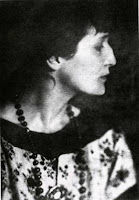
There Are Four of Us
Herewith I solemnly renounce my hoard
of earthly goods, whatever counts as chattel.
The genius and guardian angel of this place
has changed to an old tree-stump in the water.
Earth takes us in awhile as transient guests;
we live by habit, which we must unlearn.
On paths of air I seem to overhear
two friends, two voices, talking in their turn.
Did I say two? ... There by the eastern wall,
where criss-cross shoots of brambles trail,
--O look!--that fresh dark elderberry branch
is like a letter from Marina in the mail.
--November 1961 (in delirium)
The spiritual emphasis of this poem stands out, because it is through this preferring of the spiritual world that there is a recognition of the presence of the dead. In fact the physical world seems important, for the most part, only insofar as it points us back to the spiritual (i.e. the guardian angel as tree stump and the branch as a letter from a [likely deceased] friend).
Thursday, December 6, 2007
Ruminations of Homesickness and Seminar Papers at Christmastime
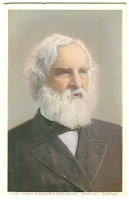
Weary and homesick and distressed,
They wander east, they wander west,
Then stay at home, my heart, and rest;
This poem is the thing that I would prefer to live by and never get anywhere near. It is my ideal, perhaps because it is so far from anything that I am.
It is the appetitive part of the soul that rules when we live without risk and in fear of death. This is the most reprehensible model of life in my way of thinking. And yet it is when the appetitive part of the soul rules that we are restless (Augustine!). Although, in fairness, perhaps what Longfellow presents as a dichotomy is actually not--perhaps there is a third alternative besides staying at home and wandering: traveling--a sort of pilgrim traveler--spending your whole life getting to one place, which of course involves some digressions along the way. This would be the difference between the Straussian "quest as life" model and the Christian model of seeking the good involving a quest, but not being satisfied with just the quest, just the unknowing.
Tuesday, December 4, 2007

If I should buy jellybeans
And then there's those other things
Which for several reasons we won't mention
Everything about them is a little bit stranger, a little bit harder
A little bit deadly
You got to keep in the game
It's not very smart
There's something here that is true to the human experience, even the Christian experience--we are at an in-between: between this world, which is fallen, and the next. And there is no overcoming that. Eric Voegelin calls this the metaxy. Rufus Wainwright identifies it, imaginatively as the tower of pisa, a lesson in tightropes, and surfing. Also, his question of place and how he ties it to an understanding of being in the in-between is interesting. He understands himself as a traveler, dislocated from his place of origin: "Always been a shoe made for the city," "adios Kansas," and "prodigal sons." Particularly with the reference to prodigal sons, he sees himself as someone who has left his home (with the potential there for return; unless this is just a jab at those who criticize his lifestyle). Yet he is conscious of where he comes from and afraid to disappoint others through his vices, although he never ignores his vices nor treats them as anything other than vices. Additionally, there is an argument against nostalgia and naivety in the reference to Raggedy Andy.
Monday, December 3, 2007
Fabulous Things I Heard on the Radio
Possibly, that means that even in photographs, they're fine. Clearly not fair.
Sunday, December 2, 2007
Country Music as Modern Ironic Villanelle
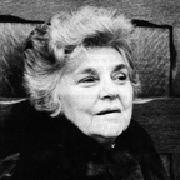 ere is Elizabeth Bishop's "One Art" as an example of a villanelle:
ere is Elizabeth Bishop's "One Art" as an example of a villanelle:The art of losing isn't hard to master;
so many things seem filled with the intent
to be lost that their loss is no disaster.
Lose something every day. Accept the fluster
of lost door keys, the hour badly spent.
The art of losing isn't hard to master.
Then practice losing farther, losing faster:
places, and names, and where it was you meant
to travel. None of these will bring disaster.
I lost my mother's watch. And look! my last, or
next-to-last, of three loved houses went.
The art of losing isn't hard to master.
I lost two cities, lovely ones. And, vaster,
some realms I owned, two rivers, a continent.
I miss them, but it wasn't a disaster.
--Even losing you (the joking voice, a gesture
I love) I shan't have lied. It's evident
the art of losing's not too hard to master
though it may look like (Write it!) like disaster.
A villanelle has five stanzas of three lines each and a final stanza of four lines. The first line of the first stanza is repeated as the last line of the 2nd and 4th stanzas. The third line of the first stanza is repeated as the las line of the 3rd and 5th stanzas. These refrains follow each other to become the last two lines of the poem. Note the repetition of the line, "the art of losing isn't hard to master" and yet note that this has been questioned and been problematized and been made ironic by the end of the poem. Clearly, it is hard to master. In the same way, country music often repeats one line as a refrain, but has the meaning change throughout the course of the song, often undermining the line by the end of the poem.
Now, the lyrics to "Stay" by Sugarland:

And I’ll be beggin’ you, baby
But I’ll be left here waitin’
What do I have to do to make you see
You keep tellin’ me, baby
And I’m tired ‘a waitin’
It’s too much pain to have to bear
Why don’t you stay
I can’t take it any longer
Why don’t you stay
The Eyes are the Window of the Soul
Myrrh and I are trying to cure my propensity to blink in pictures in which the flash is used (this was a problem in my early childhood; there are countless pictures of my siblings and I in which I am smiling, my eyes dreamily closed; it has re-inflicted me of late, particularly in stressful situations, such as when there are many people in the picture and people are insisting that my eyes stay open; I knew that I was cut out for not these times--I would have fit in well in a pre-photography world, or a world in which there were no flashes, you just had to sit still for a half an hour for the film to expose; only in that case, I think that my mouth would have blurred). The cure involves five pictures a night--straight on, with flash. So far, I am 4 for 5 and 4 and 1/2 (only one eye closed) for 5 (although, in the interest of full disclosure, I propped my eyes open with my fingers in one of the pictures).
On the First Sunday of Advent--Violet

Perhaps this is necessary in a world in which God and Christmas are divorced? But isn't making a happy birthday cake for Jesus an admission that we've entirely bought into a secularized Christmas and have to make up novel, gimmicky ways to "reinsert" Christ in our celebration?
In Defense of Nostalgia
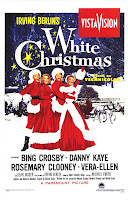
I'm dreaming of a white Christmas,
I'm dreamin' tonight of a place I love
I'll be home for Christmas
Saturday, December 1, 2007
On Apology

Rapt and radiant Anne continued until they were in the very presence of Mrs. Lynde, who was sitting knitting by her kitchen window. Then the radiance vanished. Mournful penitence appeared on every feature. Before a word was spoken Anne suddenly went down on her knees before the astonished Mrs. Rachel and held out her hands beseechingly.
"Oh, Mrs. Lynde, I am so extremely sorry," she said with a quiver in her voice. "I could never express all my sorrow, no, not if I used up a whole dictionary. You must just imagine it. I behaved terribly to you--and I've disgraced the dear friends, Matthew and Marilla, who have let me stay at Green Gables although I'm not a boy. I'm a dreadfully wicked and ungrateful girl, and I deserve to be punished and cast out by respectable people forever. It was very wicked of me to fly into a temper because you told me the truth. It WAS the truth; every word you said was true. My hair is red and I'm freckled and skinny and ugly. What I said to you was true, too, but I shouldn't have said it. Oh, Mrs. Lynde, please, please, forgive me. If you refuse it will be a lifelong sorrow on a poor little orphan girl would you, even if she had a dreadful temper? Oh, I am sure you wouldn't. Please say you forgive me, Mrs. Lynde."
Anne clasped her hands together, bowed her head, and waited for the word of judgment.
There was no mistaking her sincerity--it breathed in every tone of her voice. Both Marilla and Mrs. Lynde recognized its unmistakable ring. But the former understood in dismay that Anne was actually enjoying her valley of humiliation--was reveling in the thoroughness of her abasement. Where was the wholesome punishment upon which she, Marilla, had plumed herself? Anne had turned it into a species of positive pleasure.
This scene is unparalleled in children's literature. And Megan Follows performs it amazingly well in the film. It raises the important question of belief: I always wondered as a child when my mother said, "Tell your sister that you're sorry," how she could compel me to be sorry, because it obviously isn't ethical for her to compel me to lie (or say that I was sorry when I wasn't--and of all horrible manner of things I was as a child, I was very rarely dishonest). Anne, I think, bridges these questions well: she is simultaneously honest and true to herself and dramatic; she apologizes with a sense of irony and engagement.


